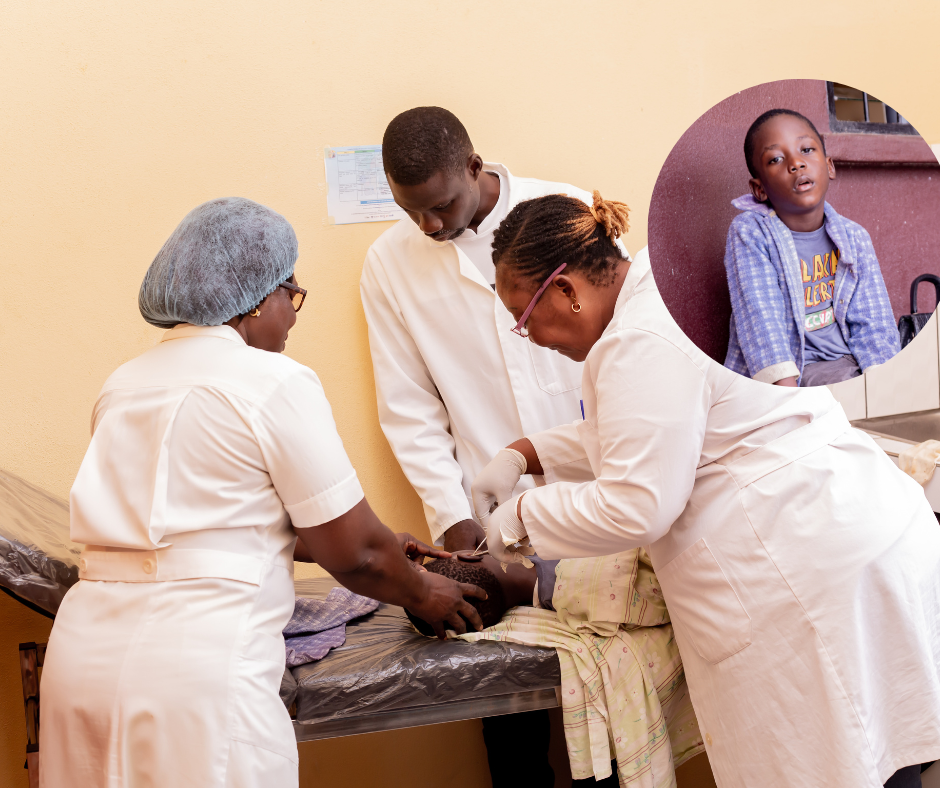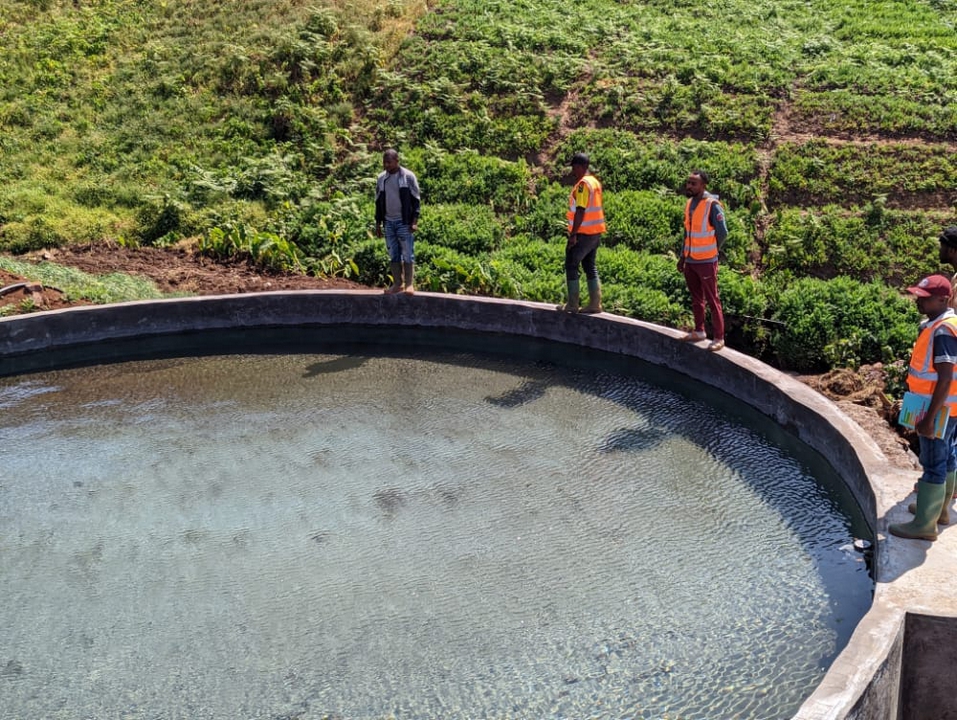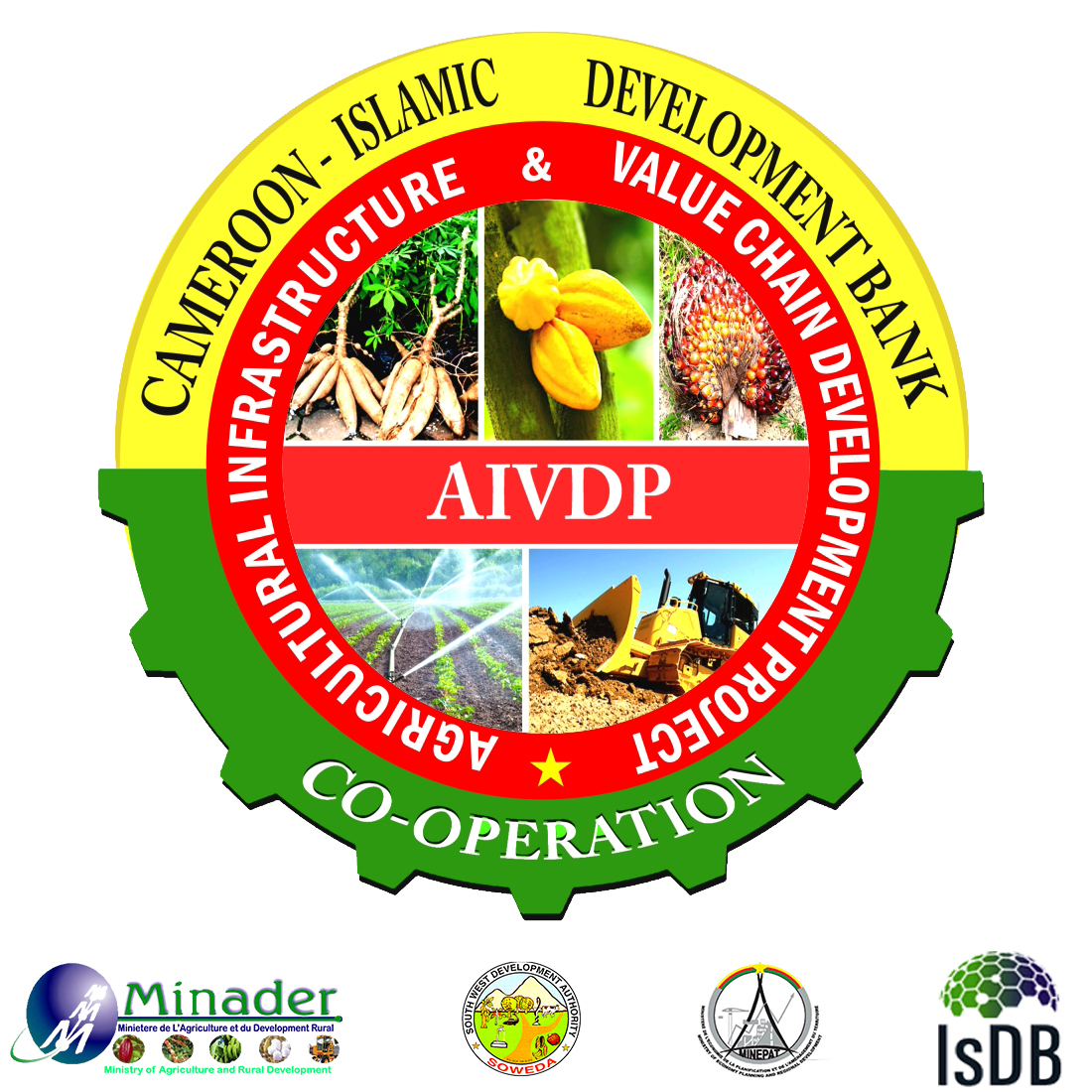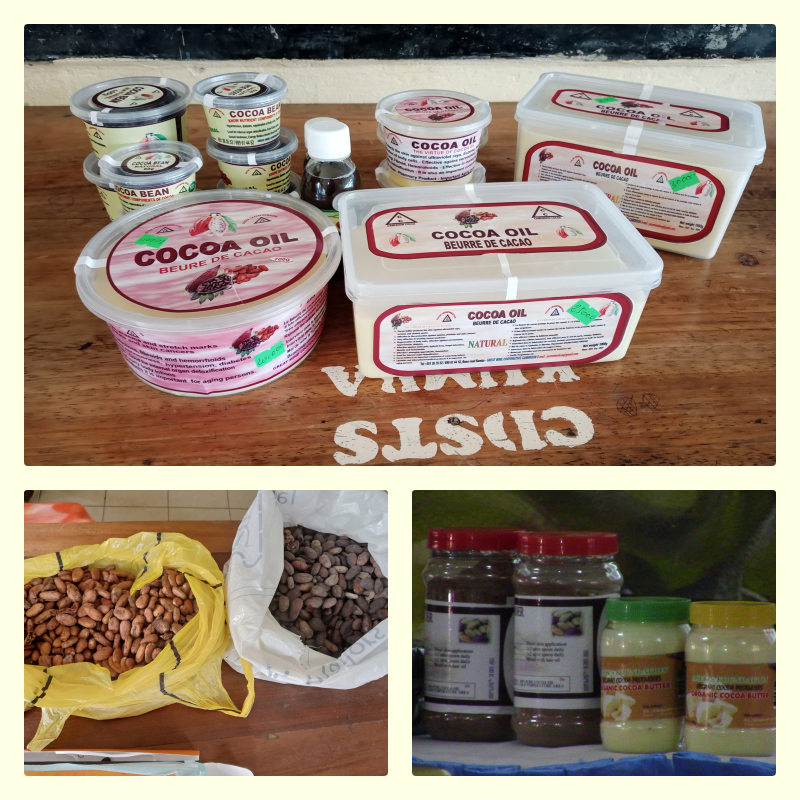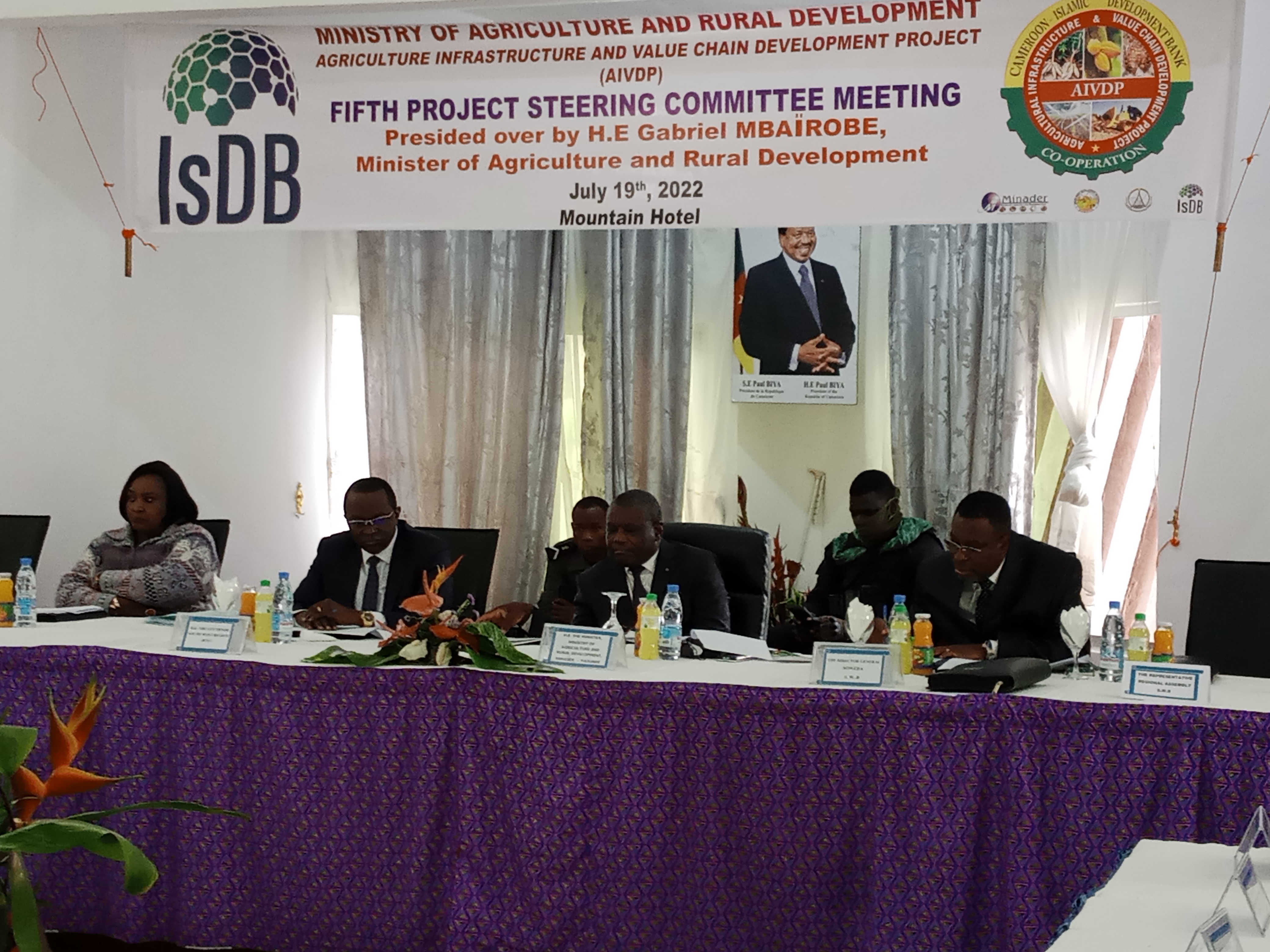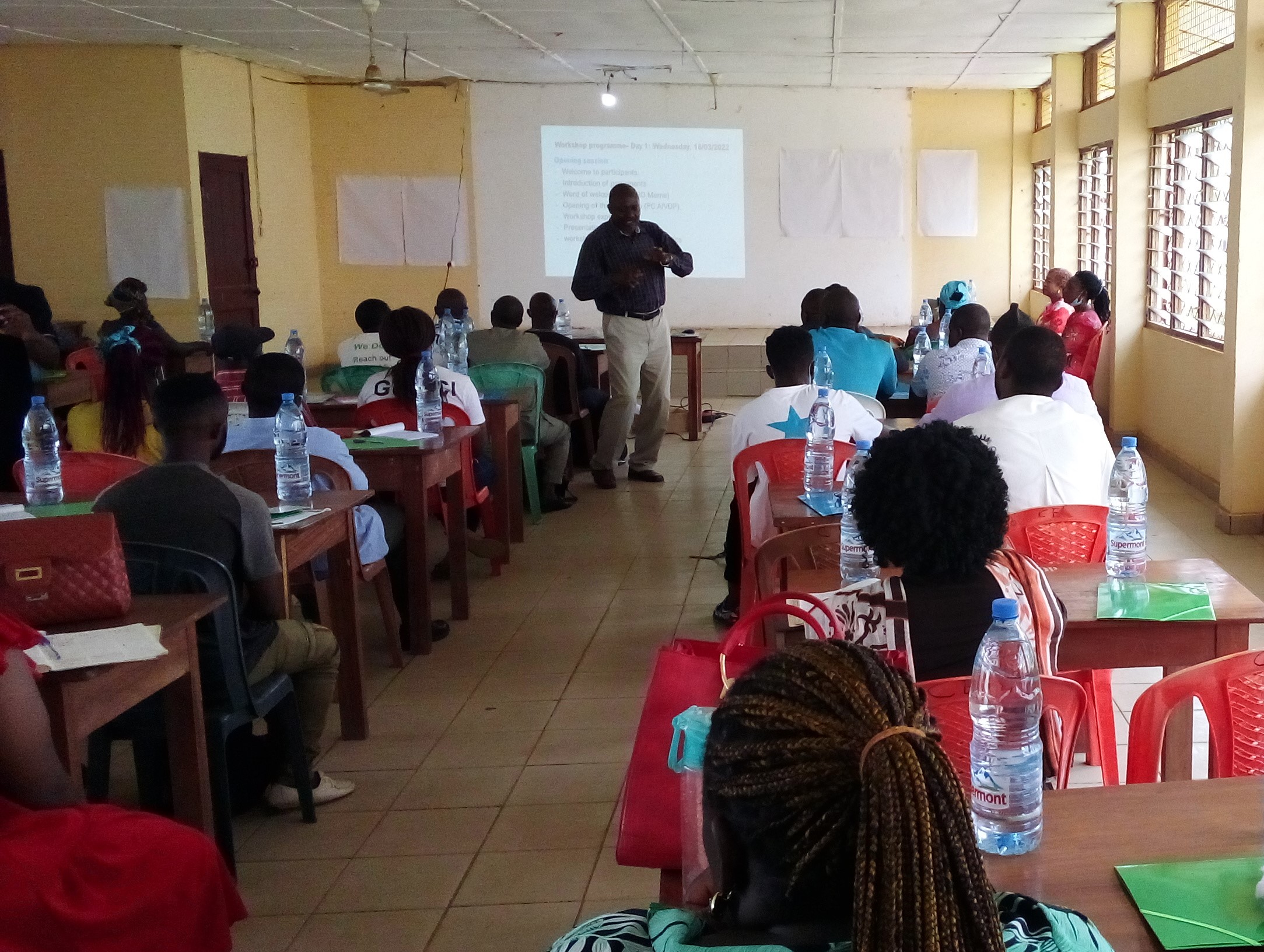
Continuing its on-going strategy to increase incomes for small-holder farmers in the South West Region through improving agricultural production/productivity and developing the value chain of key crops, a workshop for oil palm farmers was held in Kumba from the 15-18th of March. The workshop, which was centered on oil palm development, was held at the Community Development Specialization and Training School (CDSTS), Kumba.
The three day workshop which was coordinated by the Project Coordinator and facilitated by resource persons including AIVDP’s Value Chain Cooperative Specialist and Gender Officer, saw the participation of 19 males and 8 females. The workshop, which contained representatives from 12 producer organisations and 13 individual medium to large scale farmers from Nguti, Lakes and Mungo Basin, aimed at building capacities of cooperatives in oil palm value chain upgrading and management in order to increase yield, improve their business efficiencies and enhance their livelihoods. A semi industrial oil mill in Lakes Basin is currently under construction which will assist farmers in surrounding catchment areas in increasing productivity and quality of their palm oil.
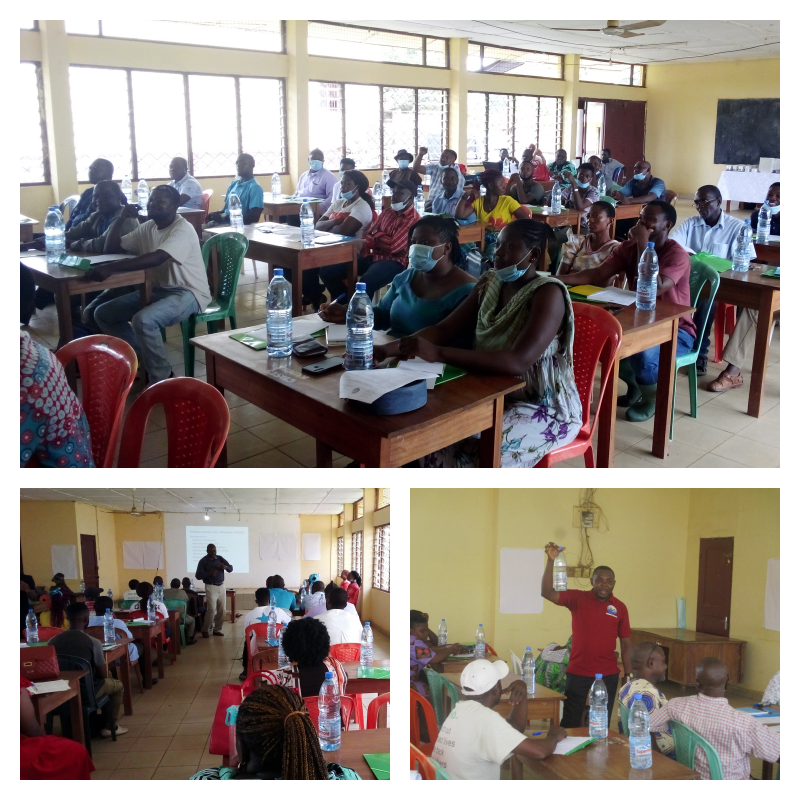
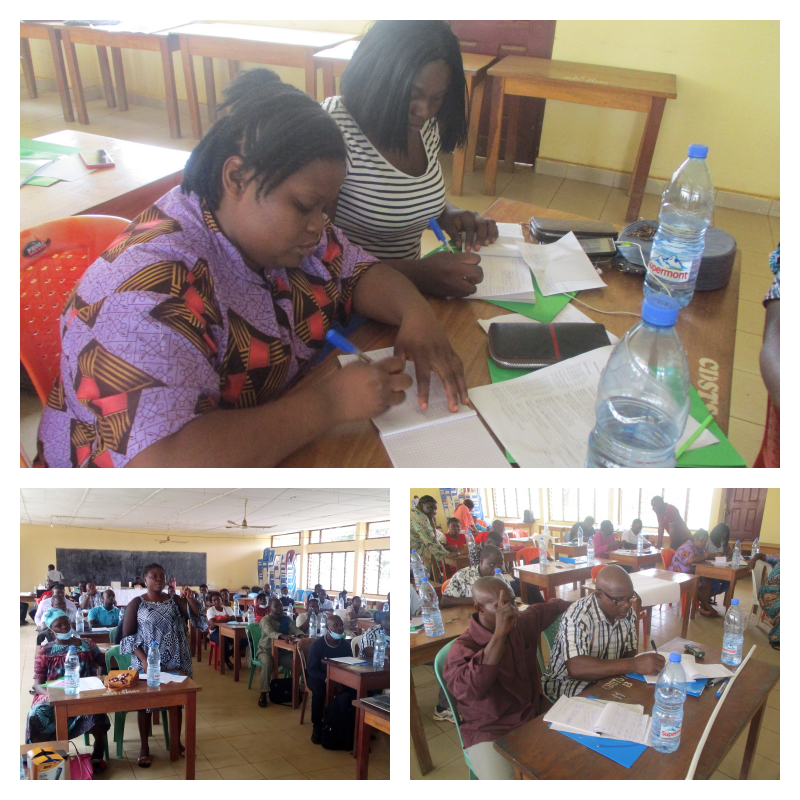
Above: Producer organizations and small holder farmers listen attentively to modules by facilitators
Through an introductory presentation, participants expressed their desire to build their capacities in areas such as best production methods for oil palm, quality improvement for palm oil, oil transformation, followed by record keeping. As such, modules such as Determining Approaches to High Quality Palm Oil, Production and Extraction Efficiency, Establishing Strategies and Interventions in Oil Palm Value Chain, Analyzing Gross Margins and Profitability in Palm Oil Value Chain and others, were presented to address participant’s areas of concerns.
The training sessions, which followed an interactive and participatory format, comprised of an assortment of practical activities, theory, group work, case studies, brainstorming and plenary sessions. The workshop culminated in the development and presentation of draft action plans which AIVDP field staff are expected to backstop. Attendees were also provided with training manuals and have been supplemented with additional reference materials to accompany backstopping activities to be performed by field staff.
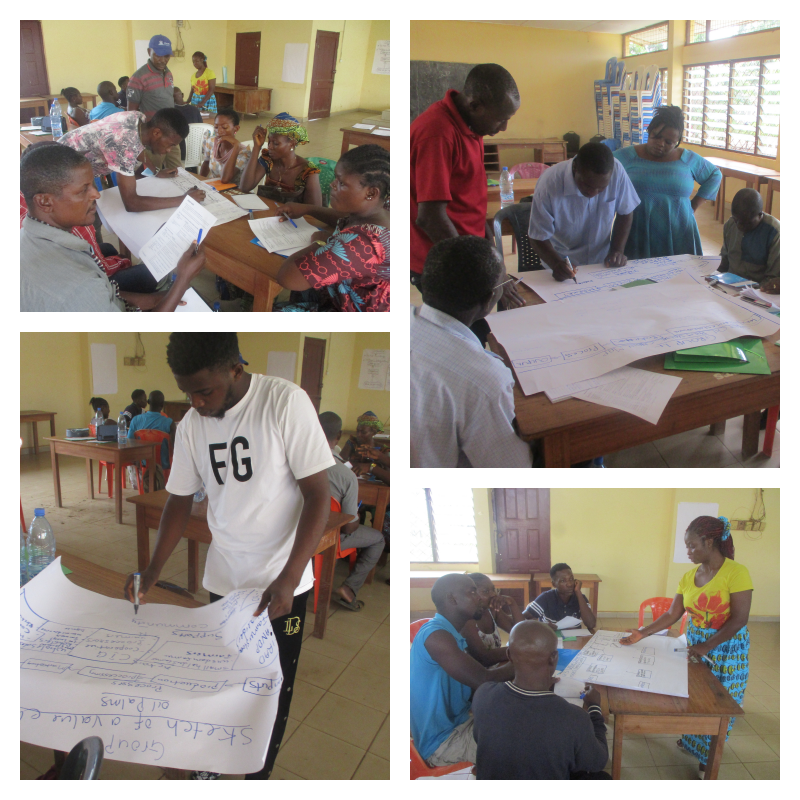
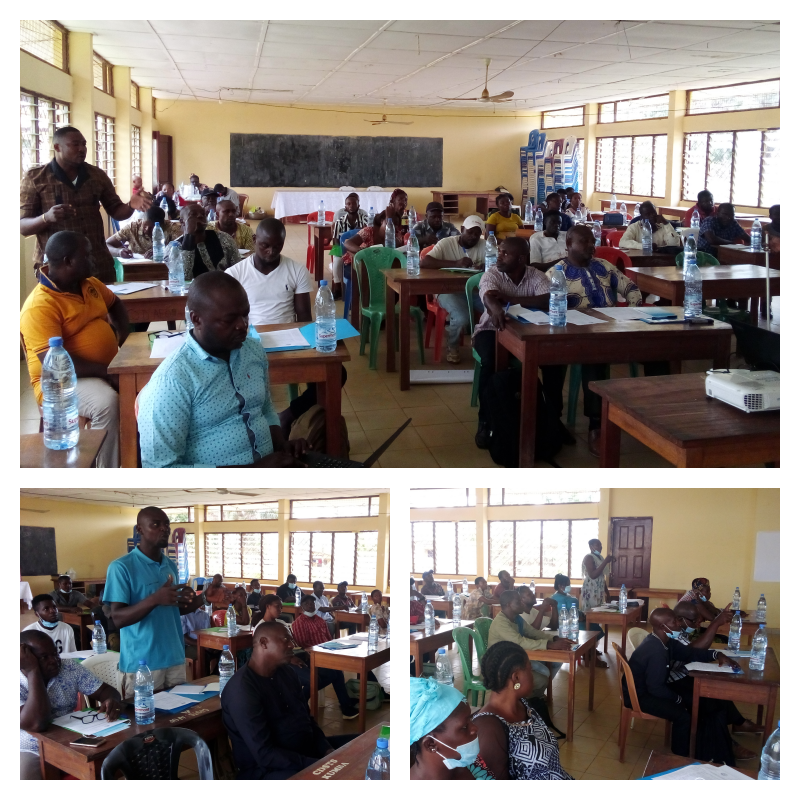
Above: Participants draft action plans and share contributions during interactive sessions
Initially citing areas of Transformation, Harvesting and Packaging and Pest and Diseases as major constraints in oil palm productions, participants departed the workshop invigorated with knowledge and optimism. ‘I found the workshop especially useful as it made me reflect on things I had never considered before such as record keeping to assess if I was making losses or gains on my palm oil production’ states Mr. Nganda an oil palm producer in Lakes Basin. Equally enthusiastic was Ms. Ebob, a member of the BOCA Farmer Youth Cooperative who initially encountered issues with local milling methods used by her cooperative. ‘The topics relating to the processing and marketing techniques of oil palm really helped me see how much income can be made by paying attention to these aspects. Overall, this workshop has given me the complete tools to produce higher quality palm oil at a much higher rate than that which we’ve been struggling with.’’ Twenty four year old Ms. Mary, also a part time student and oil palm farmer adds, ‘The class which I found most beneficial was one assessing milling methods-comparing dry and wet methods. Now that I’ve attended this workshop, I will educate my family on the proper steps we should be taking to improve our oil production.’’
The upcoming workshop which will see attendees from Akwaya, Cross River and Mbio Basins will be the last in the series of workshops in oil palm value chain development and is expected to take place in the upcoming months of 2022.
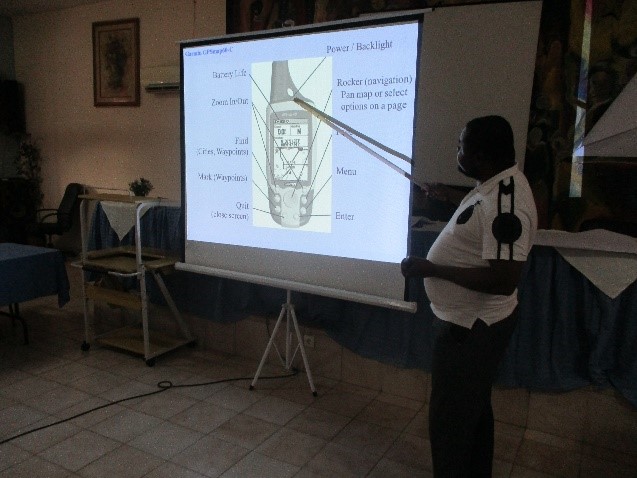
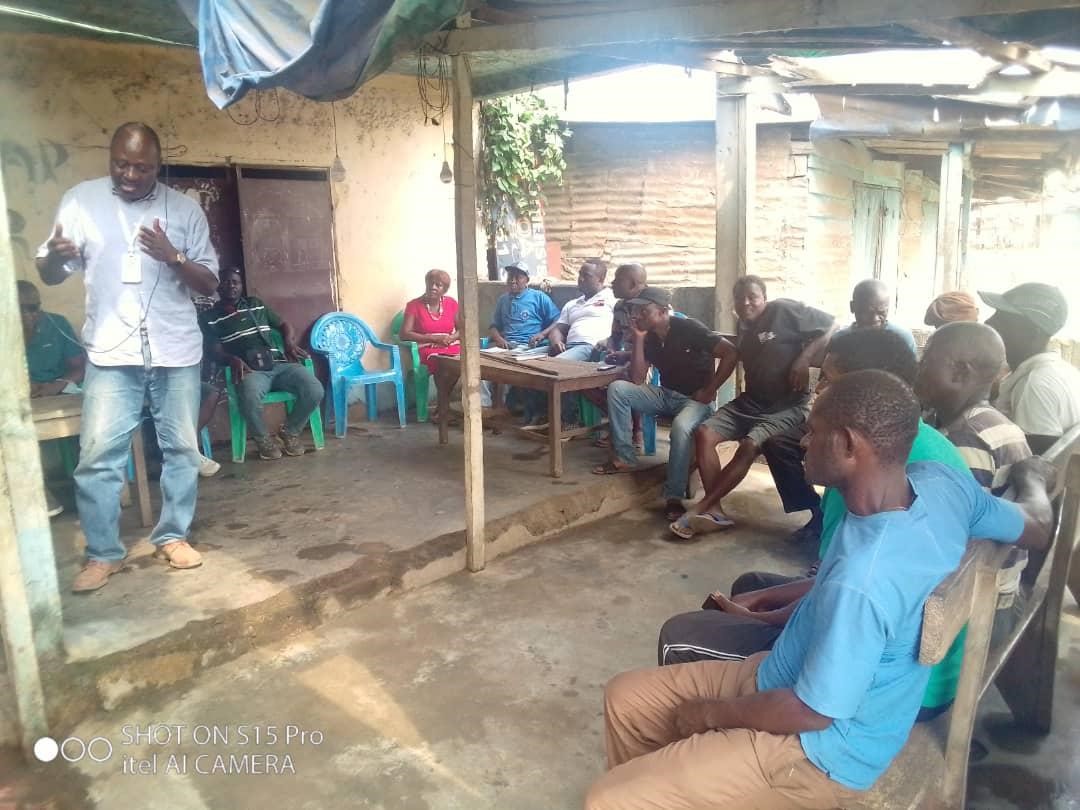
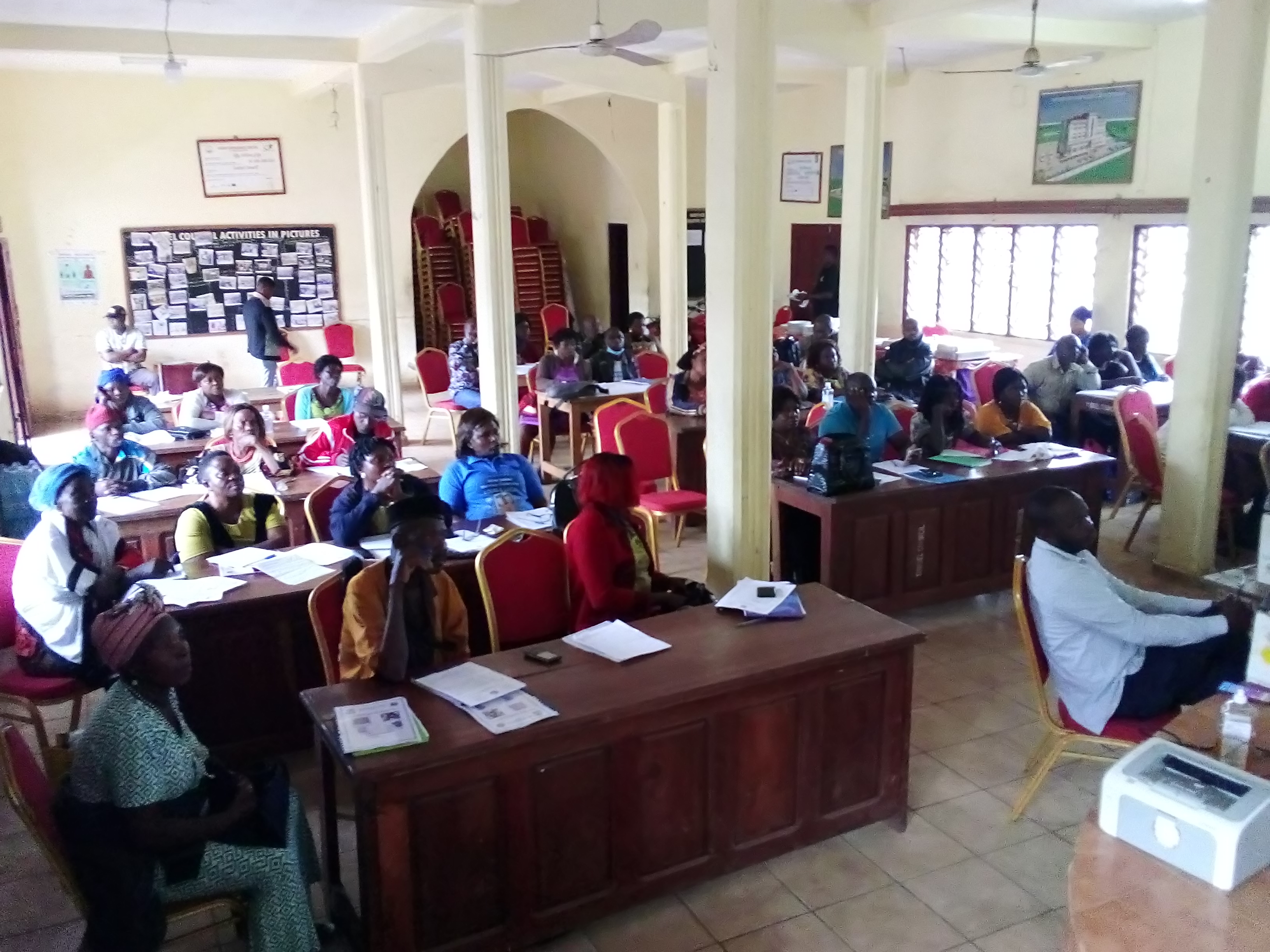
.png)
.png)
